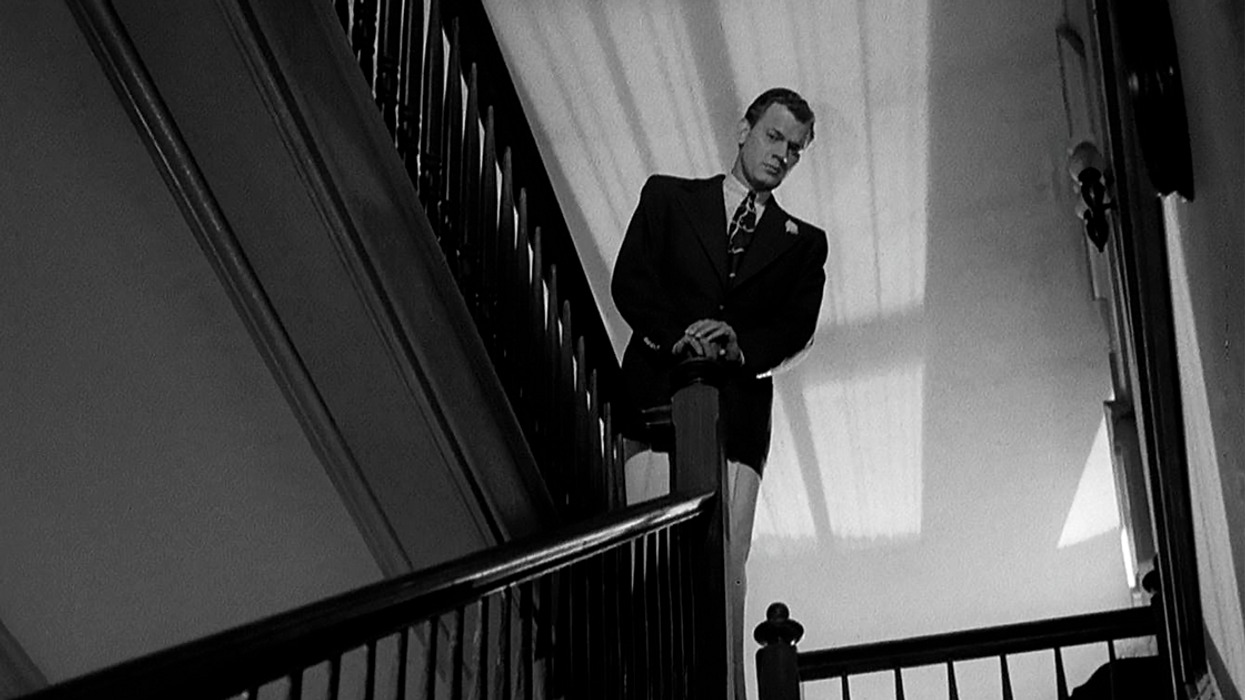What Was Hitchcock's Favorite Movie He Made?
The master of suspense confessed to Dick Cavett that he liked one of his works more than the rest.

Shadow of a Doubt
I have recently become obsessed with watching old Dick Cavett interviews with filmmakers. I find him to be one of the best interviewers. He gets so many good gems out of these landmark individuals. And he really had his finger on the pulse of old and new Hollywood at the time.
One of my favorite all-time interviews he did is with Alfred Hitchcock.
Their conversation ranges from specific movie moments to surviving Hollywood to violence and other philosophical endeavors.
It appears in many parts on YouTube, and I've included it below.
But one of the most enlightening parts of the interview is when Hitchcock picks his favorite of his movies.
Alfred Hitchcock on Dick Cavett
It's worth watching all of the parts of this interview. I wanted to post the clip of Hitchcock talking about his favorite movie, but it was impossible to isolate.
When prompted by Cavett to name his favorite of all his movies, Hitchcock said, “a film I made years ago called Shadow of a Doubt,” and he said he loved it “because it was true it was a character picture”.
Hitchcock added: “It was a family in a Northern Californian town, and beloved uncle Charlie comes to stay with them and what the family don’t know is that uncle Charlie is a mass murderer, murdered many women, and the suspense is how long will it be before the family find out the truth…they never do”.
It's clear Hitchcock appreciated the film for its exploration of evil lurking beneath the surface of ordinary suburban life, as well as its more personal and intimate scale compared to his other, often more grandiose, suspense films.
Though it received critical acclaim, it's often overshadowed by his later, more commercially successful films.
What Else Makes 'Shadow of a Doubt' Special?
Shadow of a Doubt (1943) occupies a distinctive position within Alfred Hitchcock's esteemed body of work for several reasons, highlighting its uniqueness and enduring influence on the cinematic landscape.
This film breaks away from Hitchcock's usual penchant for glamorous locales and sweeping suspense, choosing instead the deceptive calm of small-town America as its setting.
The film's antagonist, Uncle Charlie (played by Joseph Cotten), is a charismatic character who initially appears to be the epitome of a family man. However, as the plot progresses, his sinister secrets start to unravel, exposing a chilling reality. This juxtaposition of external charm and internal malevolence creates a tension and unease that is quintessentially Hitchcockian.
The psychological intricacy of Shadow of a Doubt is noteworthy. The intricate relationship between Uncle Charlie and his niece, also named Charlie (played by Teresa Wright), introduces multiple layers to the story.
Charlie's adoration for her uncle and her subsequent disillusionment upon uncovering his true nature are depicted with nuance and depth, offering a rich examination of themes like the loss of innocence and the dual aspects of human nature.
Hitchcock's directorial approach in Shadow of a Doubt showcases his pioneering use of cinematic techniques to enhance suspense and character development.
The manipulation of shadow and light, strategic framing, and the use of dialogue and silence all contribute to the film's atmospheric tension.
Shadow of a Doubt stands out not only as Hitchcock's personal favorite but also as a masterclass in storytelling, blending suspense, psychological depth, and a critique of the ostensibly idyllic American life. Its continued relevance and influence affirm its place as a cornerstone of cinematic history.
Let me know what you think in the comments.
- Alfred Hitchcock's Directing Artistry, Dissected ›
- Advice from Director William Friedkin: 'Leave Film School' & Study Alfred Hitchcock ›
- This Infographic Analyzes the Themes and Motifs that Captivated Hitchock ›
- How YouTube Became One of the Most Important Sites Ever | No Film School ›
- How Alfred Hitchcock Used Visionary Cinematography | No Film School ›
- 21 Best Family Movies of All Time | No Film School ›











